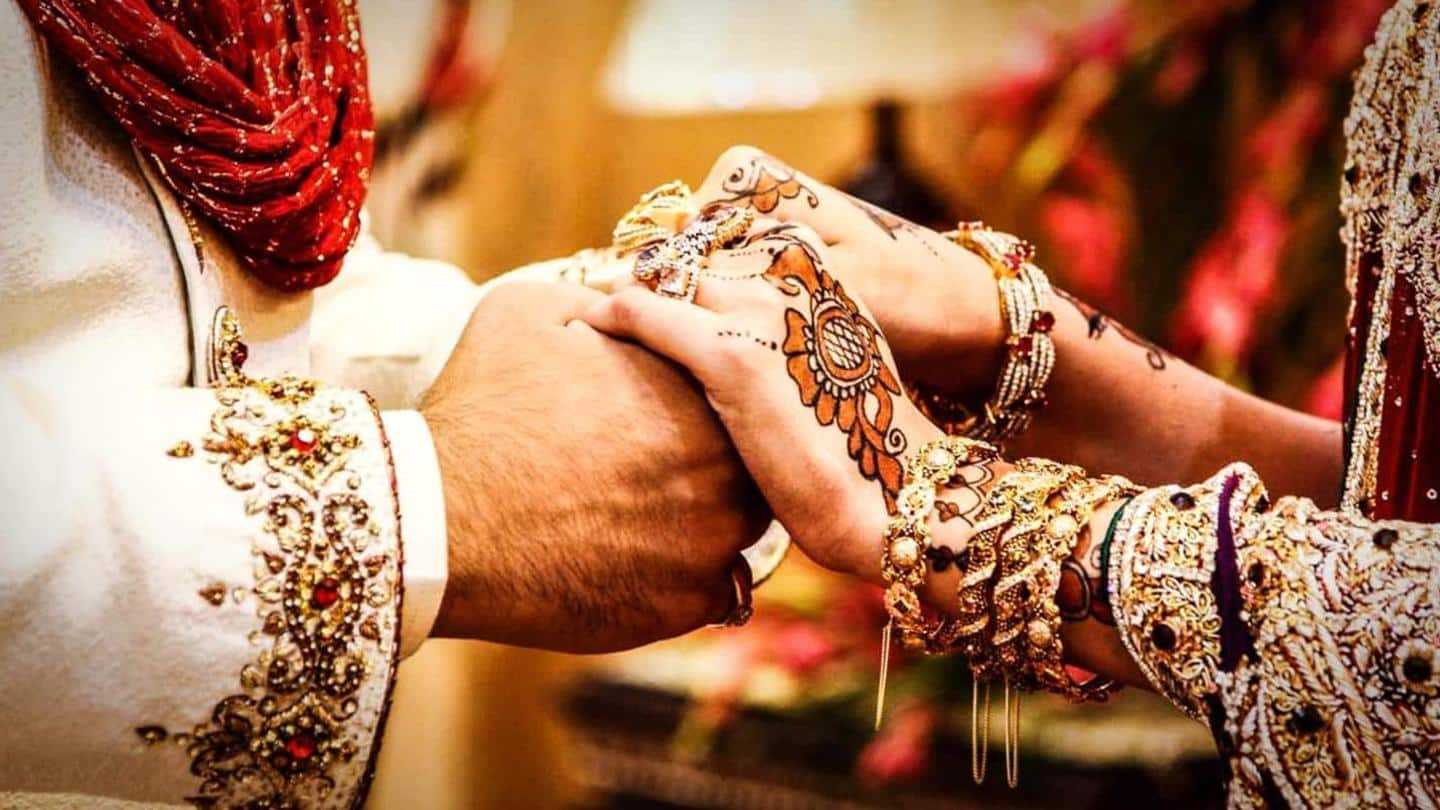
Gujarat HC shields interfaith marriages from harassment under anti-conversion law
What's the story
The Gujarat High Court on Thursday ordered an interim stay on some sections pertaining to interfaith marriages of the newly enacted anti-conversion law, Gujarat Freedom of Religion (Amendment) Act 2021.
The court said the order was passed to protect people from unnecessary harassment.
Notably, Gujarat amended the anti-conversion law by enacting new sections that penalize forcible or fraudulent religious conversion through marriage.
Details
'Anti-conversion law not applicable to interfaith marriages without force, allurement'
The order passed by a division bench of HC ruled six sections of the amended anti-conversion law will not apply to interfaith marriages which take place without force, allurement, and fraudulent means.
The court passed the order while hearing petitions challenging the constitutionality of the law, notified on June 15.
The court also observed that marriage and religion are matters of personal choice.
Ruling
What does the stay mean?
The court put a stay on Sections 3, 4, 4A to 4C, 5, 6, and 6A of the mentioned Act.
This means an FIR cannot be lodged merely based on their interfaith marriage.
When the state's Advocate General Kamal Trivedi sought more clarification, the court said in the absence of force, allurement, or fraud, the provisions will not be applicable.
Law
What do the sections say?
Section 3 prohibits forcible conversion from one religion to another by marriage or aiding to get married, including allurement, force, or fraudulent means.
Section 4 and 4A prescribe imprisonment between three-five years if found guilty.
Section 4B declares marriages by unlawful conversion as void.
Under Section 4C, organizations can be tried for unlawful conversion.
Section 6A places the burden of proof on the accused.
Government
No ban on interfaith marriages: Government
The state's counsel Advocate General Kamal Trivedi on Tuesday defended the anti-conversion law, saying there is no ban on interfaith marriages.
Stating there should be no fear about the provisions, Trivedi said, "Why this fear? So long as genuine conversion is there, people need not worry. Interfaith marriage, per se, is not prohibited in this law. It only prohibits forcible conversion by marriage."